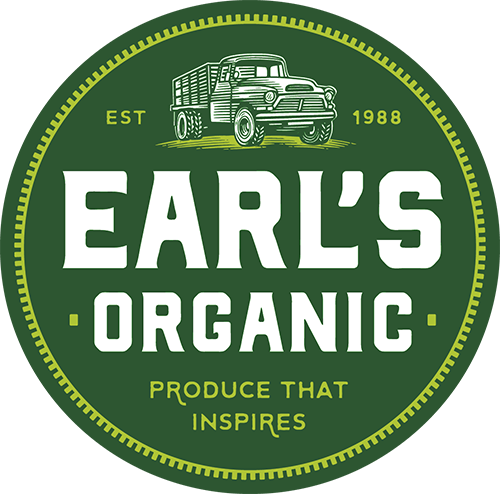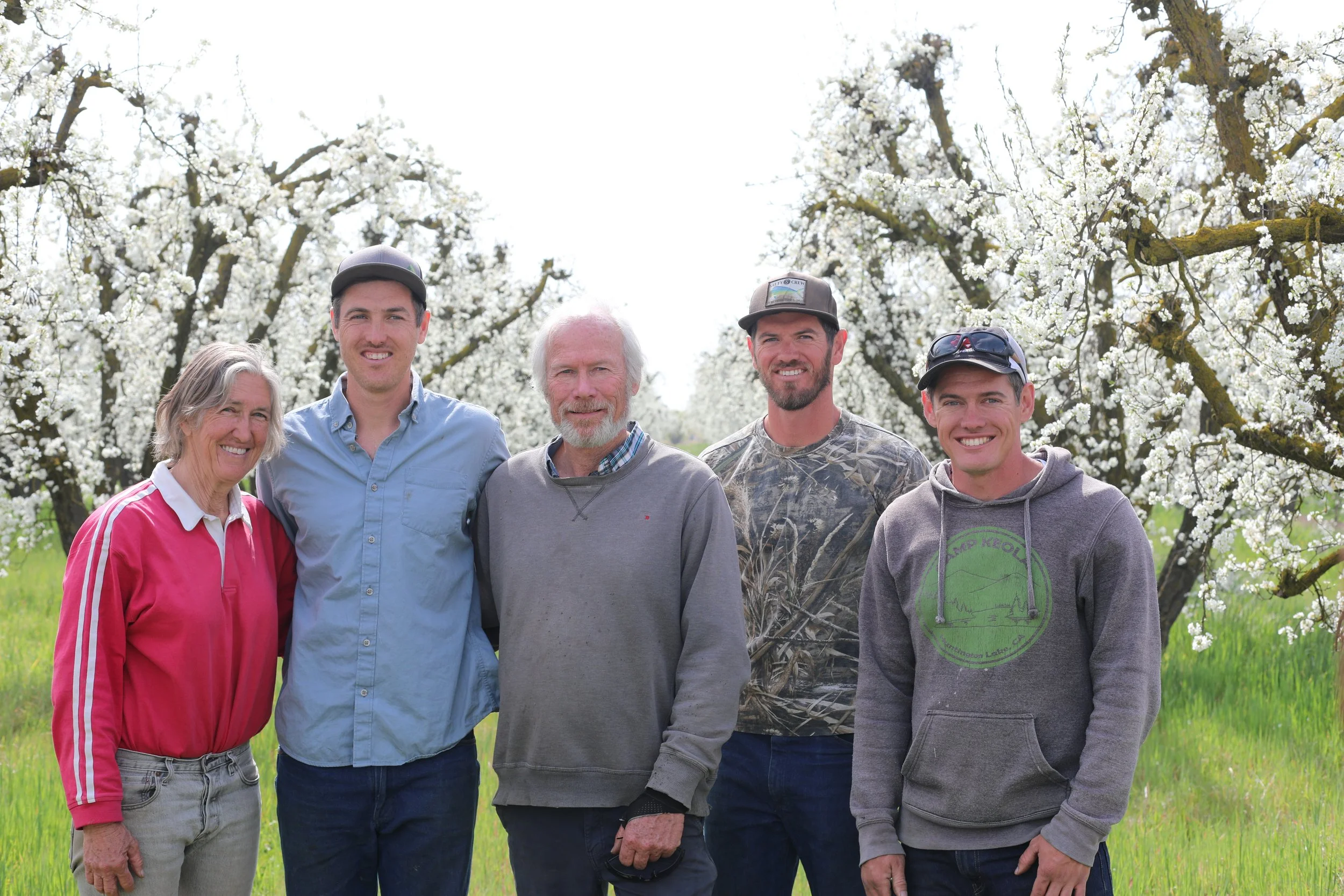FARM TOUR 2022: D.E. BOLDT STONE FRUIT
We had the pleasure to meet Mason, our Sales Rep at Valliwide Marketing, at his small office inside a Reedley fruit packing facility. Founded by his father in ‘91, fully organic since 2004, he became co-owner of the company in 2016. In common fashion we spoke of the industry, of his shipping to the East Coast and of working with large retailers. He shared that many of them aren't invested in what it takes to farm or the high costs of new packaging, unlike a true two-way relationship with Earl’s. Touring the massive facility makes you ponder all the cold storage, packing sheds, and chains of buyers and sellers that keep the system working.
From there he took us to meet the Boldt family, one of their primary stone fruit growers. Dorothy, David, and their sons greeted us with their sun-worn eyes and big smiles. The Boldt’s have always operated from a position of stewardship for their family and their land.
The conversation flowed easy, Dorothy dove right into questions about their customers (did they notice the new, compostable stickers by varietal? Were they annoyed with the adhesive residue? Use lemon peel oil to remove!). We peeled off into little groups, further discussing their operation.
Dorothy explained the challenging, time-critical logistics of harvesting at peak ripeness, picking through 2-5 times in that short window. Their crew of pickers look for size, color, and shape, they taste for flavor and texture, informed decisions made in an instant. Nick & David showed off a new invention: solar powered harvesters! With panels and pickers on each side, their goal is to create a gps-based automation system so the fresh-pick can trot back to the pack shed on its own. Their casual passion, experience, and innovation was remarkable. As well as their dedication to who their customers are and what they want: the best quality fruit!
Much of their equipment is home-constructed with this intention. From a food safety standpoint, they made sure to explain why they avoid any washing – while mitigating the risk of water-borne illnesses, this decision also preserves the natural bloom, a waxy coating on plums and other fruit. A sign that the fruit has been handled with care, the bloom protects the fruit’s skin to ensure freshness. Picking everything at peak flavor creates a challenging dynamic, with more predicted loss due to overripe fruit; but their packing operation uses foam padding to help protect the fruit during the sorting process.
While David and Dorothy took the farm over in 1987, their family has been on the land for over 100 years; and their lives are deeply woven into those 130 acres. As we walked the groves, they pointed to the new varietals named by their kids (they’d find random sports with great-tasting fruit, and graft them onto existing root stocks). She praised the Showtime Plums that kept them afloat for years, the apricots that were the first they planted together, all while birds sung overhead. Awash with stunning & potent white blooms, you could see the strength of their age: firmly rooted, there were no issues with voles as in other groves. The mat of grass under foot was uniform, untilled, and buzzing with life.
In an echo of the other growers, David explained the variations and changes across the Valley. While Vern Peterson with Homegrown Organic, saw an ideal amount of chill hours this year, Burkart Organics did not. The Boldt’s land is located in a particularly cold pocket, and they’re sure the cold snap hit their early crop hard. But just like the others: “we’ll know at thinning time.” He helped train our eyes to see the varied topography – in the ‘50s it was thought wise to level the land, removing massive amounts of topsoil. David lamented this loss of fertility, and instead brandished a drive to work with the land’s means. It requires a constant balancing act to leave a small footprint on the earth: “You have to be strategic... voles are an issue with new trees, but you don’t want to disturb the bugs in the weeds. And it takes lot of fuel to run a tractor.” Add the pressing issues of water, climate, as well as strapped labor to the equation, and the answer is difficult to come by.
But the Boldt’s represent an increasingly rare case of direct land stewardship in the Valley. Dorothy made a mental note to remove a patch of stinging nettles – when I asked why, she answered, “because we’ll be the ones dealing with them later!” They are family farmers through and through – their sons Peter, Alex, and Nick are each farming their own acreage nearby (Nicholas Bolt Farms Label), in addition to working with their parents.
Our conversations ended with a look to the future: it takes several years before new trees will bear fruit, so as with most of us in the industry, the Boldt’s are constantly forecasting ahead. What will our customers want a few years down the line – Apriums, Pluots, Donut Peaches? They were happy to hear recent trends are moving towards Nectarines (peach fuzz is a constant source of discomfort for their dedicated crews).
The strong partnerships we have – from grower to retailer – allow us to mitigate these risks, and stay ahead of the ever-changing times; these visits bring light to the fact that we are truly in this together. We snacked on citrus from their generations-old trees, as Dorothy noticed a large egret skulking through a nearby grove. Just then she remembered an earlier promise, and ran off to return with some incredibly delicious Aprium jam: the perfect preview (and reminder) of what’s to come.

